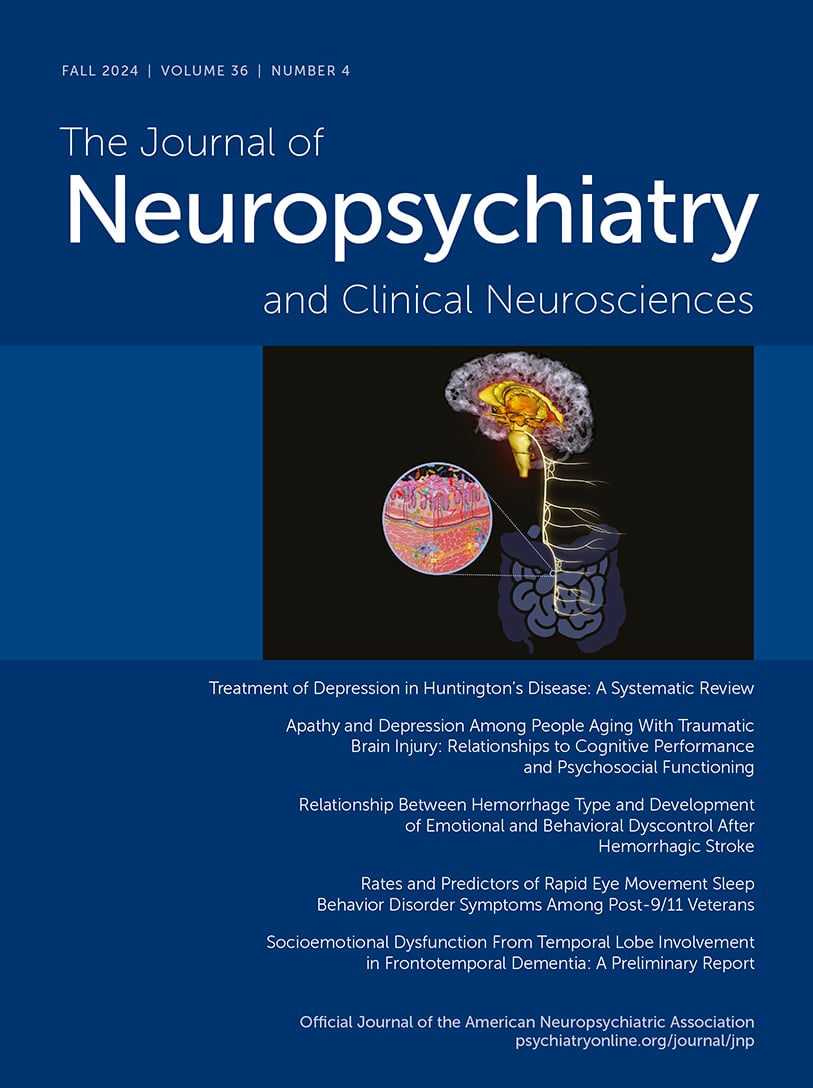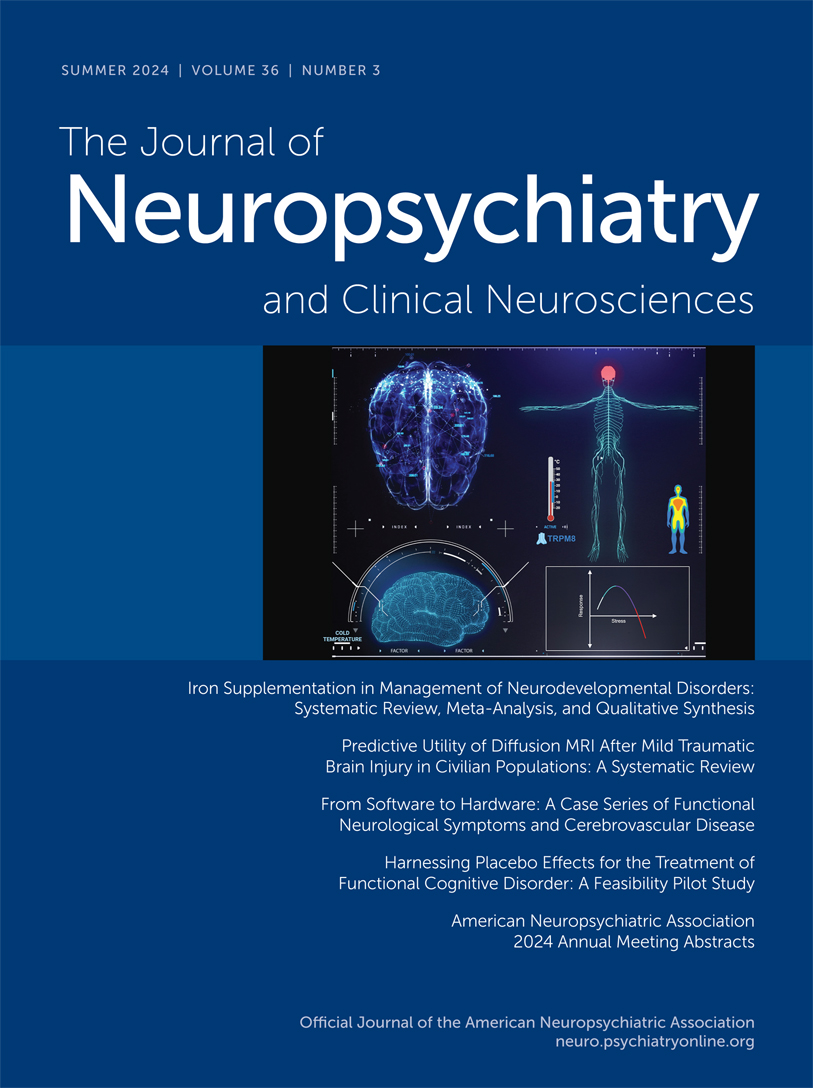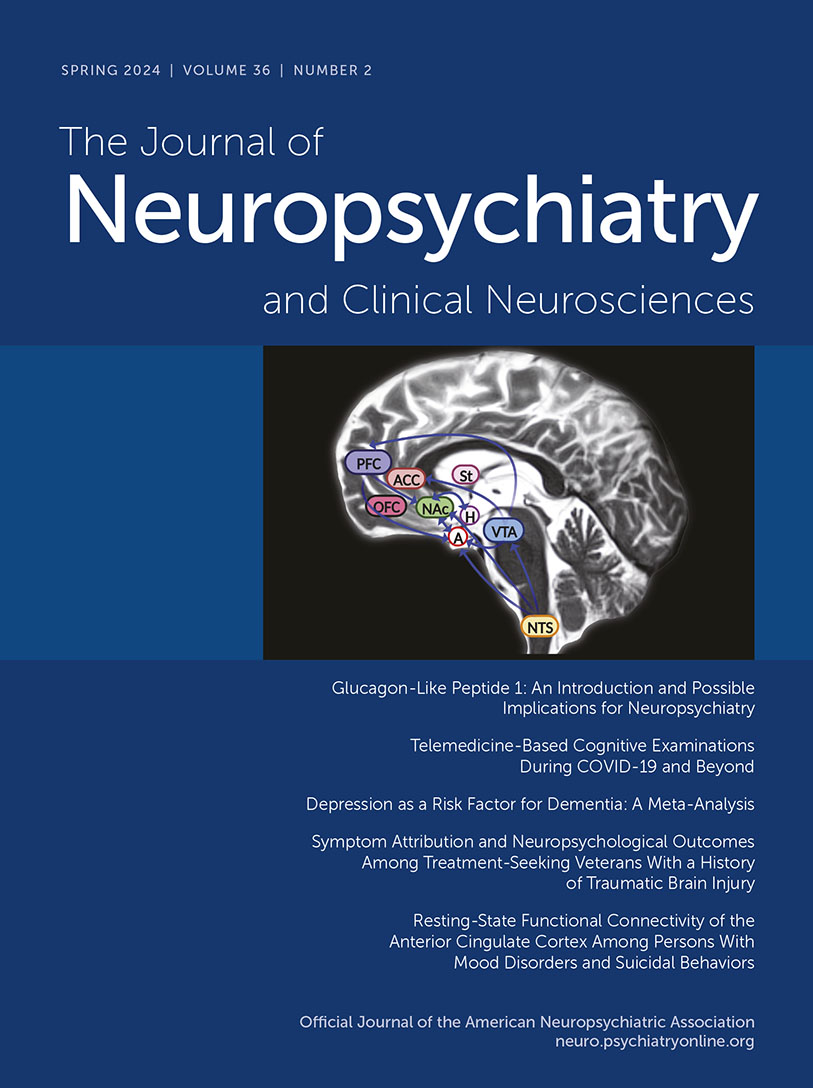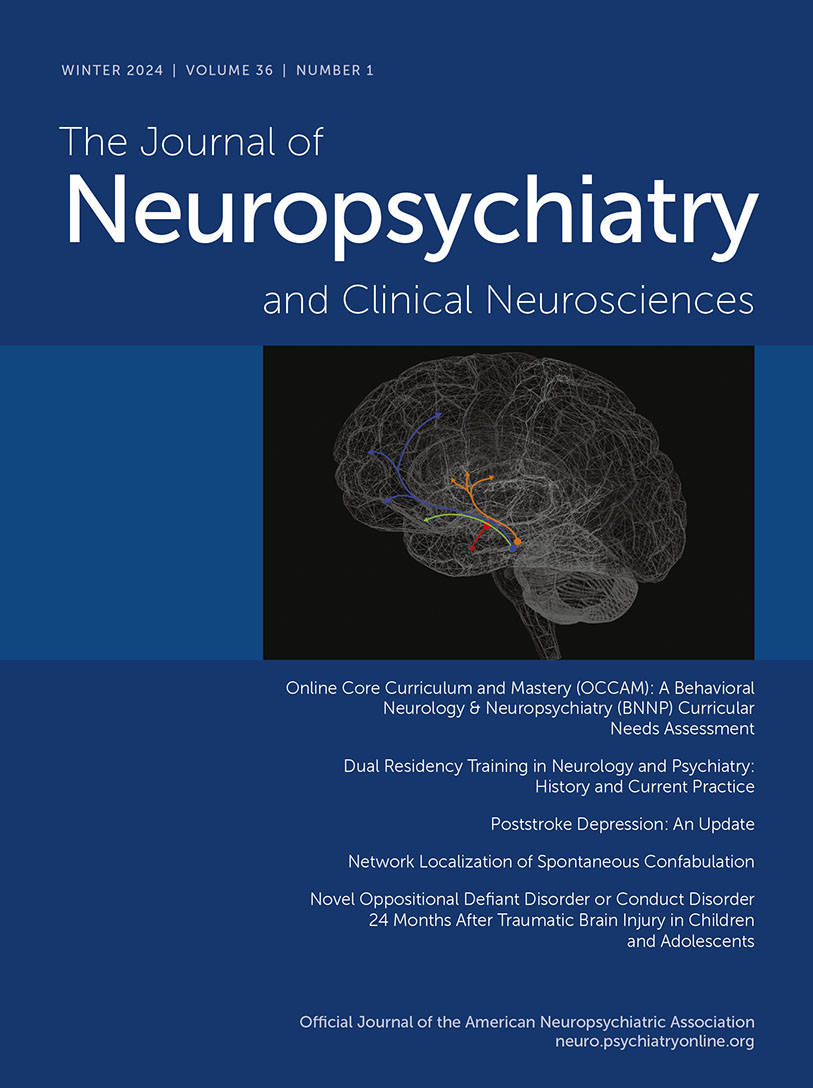The Journal of Neuropsychiatry and Clinical Neurosciences
- Volume 14
- Number 4
- November 2002
Windows to the Brain
Special Article
Publication date: 01 November 2002
Pages377–405This report reviews the state of the literature and opportunities for research related to “executive control function” (ECF). ECF has recently been separated from the specific cognitive domains (memory, language, and praxis) traditionally used to assess ...
https://doi.org/10.1176/jnp.14.4.377Publication date: 01 November 2002
Pages406–415Transcranial magnetic stimulation (TMS) is a new investigational technique used to explore various neural processes and treat a variety of neuropsychiatric illnesses. The most notable advantage of TMS is its ability to directly stimulate the cortex with ...
https://doi.org/10.1176/jnp.14.4.406Regular Article
Publication date: 01 November 2002
Pages416–423The medial surface areas of the cingulate gyrus (CG) and other midline structures (corpus callosum, thalamus, lateral ventricle) were examined in 27 traumatically brain injured (TBI) and 12 age- and gender-matched control subjects from an established TBI ...
https://doi.org/10.1176/jnp.14.4.416Publication date: 01 November 2002
Pages424–429Neuropsychiatric features characterize frontotemporal dementia (FTD). The authors evaluated the neuropsychiatric features of 53 FTD patients and retrospectively applied the Consensus Criteria for this disorder. Only one-third of the patients met Consensus ...
https://doi.org/10.1176/jnp.14.4.424Publication date: 01 November 2002
Pages430–437Clinical methods used to determine unawareness in dementia exist; however, their applicability to empirical research is limited. The authors present a statistically derived approach to determining unawareness that addresses these limitations. Dementia ...
https://doi.org/10.1176/jnp.14.4.430Publication date: 01 November 2002
Pages438–442Parkinson's disease (PD) patients commonly develop fluctuations in their motor responses to levodopa within several years of initiation of treatment; some also develop nonmotor fluctuations. The authors performed a case-control study comparing the ...
https://doi.org/10.1176/jnp.14.4.438Publication date: 01 November 2002
Pages443–448The authors investigated the thalamus in schizophrenia by using magnetization transfer ratio (MTR), a novel structural magnetic resonance technique sensitive to subtle neuropathological abnormalities. The dorsomedial nucleus (DMN) and pulvinar were ...
https://doi.org/10.1176/jnp.14.4.443Association of Obsessions and Compulsions in Schizophrenia With Neurocognition and Negative Symptoms
Publication date: 01 November 2002
Pages449–453It is unclear whether obsessions and compulsions in schizophrenia spectrum disorders are associated with a unique pattern of symptoms and deficits. Accordingly, the present study compared symptom levels and neurocognitive function of participants with ...
https://doi.org/10.1176/jnp.14.4.449Publication date: 01 November 2002
Pages454–460Recent studies suggest that novel antipsychotics have positive effects on certain cognitive functions in schizophrenia. The present study investigated this claim by means of saccadic paradigms, which provide a selective index of cognitive function. Thirty-...
https://doi.org/10.1176/jnp.14.4.454Letter
Calendar
Appreciation
Past Issues
View Issues Archive
Vol. 36 | No. 4

Vol. 36 | No. 3

Vol. 36 | No. 2
